Review: SPRING AWAKENING at The Argyle Theatre Takes Risks and Raises Questions
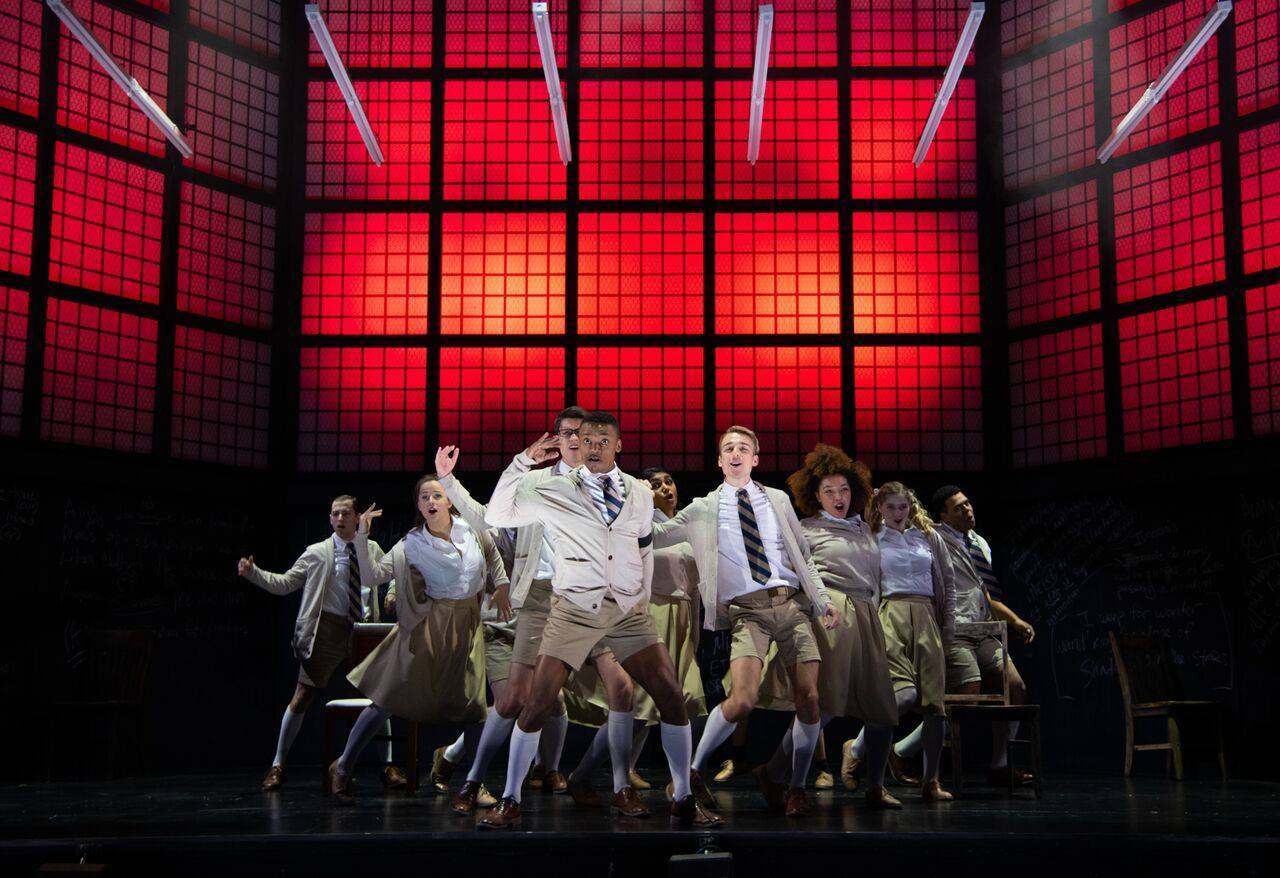 Sexually repressed youth is a tale as old as time as far as modern audiences are concerned. One could argue that the source material for the musical "Spring Awakening", German playwright Frank Wedekind's play of the same name, was one of the first to tackle such controversial topics and triggered the plethora of films and plays that deal with the controversial subject matter of teenagers and sex since the play debuted in 1906.
Sexually repressed youth is a tale as old as time as far as modern audiences are concerned. One could argue that the source material for the musical "Spring Awakening", German playwright Frank Wedekind's play of the same name, was one of the first to tackle such controversial topics and triggered the plethora of films and plays that deal with the controversial subject matter of teenagers and sex since the play debuted in 1906.
Modern audiences were given the opportunity to see the powerful messages of Wedekind's play - set in the late 19th century - juxtaposed with a manic, brilliant rock score by Duncan Sheik and equally impactful lyrics and a book by Steven Slater to create the recipient of 2007's Tony Award for Best Musical. Brought to life by The Argyle Theatre, Long Island fans of the show and those who missed it on Broadway have the chance to see this important work.
Like its source material, the basic plot revolves around a brilliant, but alarmingly Godless student named Melchior, his troubled and academically struggling friend Moritz, and the innocent, but aggressively curious Wendla. Along with their classmates, they are teenagers whose parents regard as tender ears. Despite the emotions and physical sensations they feel as they go through adolescence, they know nothing of sex, genitalia, or even how a child is conceived until Melchior finds the truth through his own research. The plot is rife with teenage angst (which is rightfully exhibited), experimentation, and ultimately tragedy.
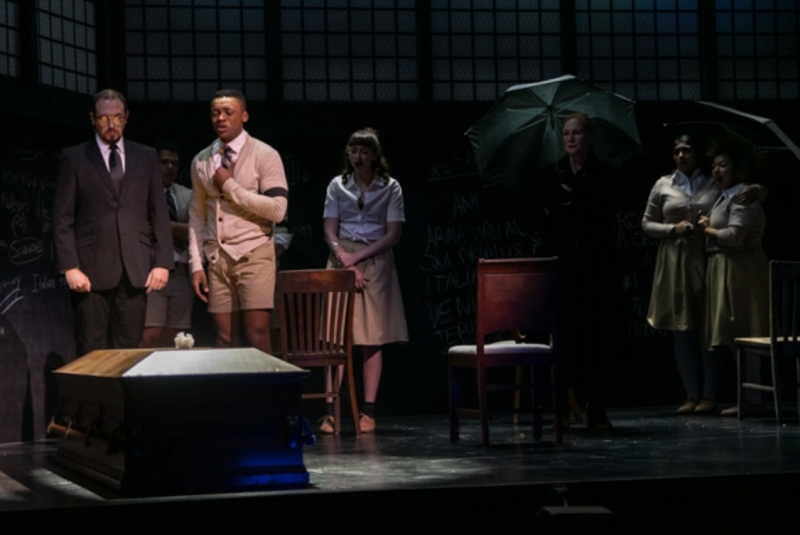 Argyle's production, however, puts a different spin on the story by including modern technologies such as a vacuum cleaner, television, and even a cell phone. The practice of directors taking liberties with the material they are working with is not uncommon. Just last summer the Bay Street Theatre in Sag Harbor set their production of Evita in a bar where patrons were reenacting the story of Eva Peron. Steven Spielberg is even revising the character of Doc in West Side Story to be a Latina woman played by Rita Moreno.
Argyle's production, however, puts a different spin on the story by including modern technologies such as a vacuum cleaner, television, and even a cell phone. The practice of directors taking liberties with the material they are working with is not uncommon. Just last summer the Bay Street Theatre in Sag Harbor set their production of Evita in a bar where patrons were reenacting the story of Eva Peron. Steven Spielberg is even revising the character of Doc in West Side Story to be a Latina woman played by Rita Moreno.
However, just because you can alter a play or a book or a film doesn't mean you should. When it works the results can be powerful and worth the risk, but unfortunately this element of Argyle's production presents audience with a show rife with self-inflicted plot holes despite a superbly talented cast, a dynamic set, and powerful - almost violent - choreography.
.png) Adding to the frustration of the conceit of teenagers equipped with cell phones, apparently knowing nothing about sex, is an unestablished time period. It is clear we are not in Wedekind's 19th century, but the decades seem to vary scene by scene. In the opening scene Wendla's mother dons a dress and is vacuuming - almost recalling the 50s "Father Knows Best" stereotype. Then in another scene she is wearing an outfit you could find in your local department store right now. Part of me wishes the director had explored the comparison of the repressed, conservative 1950s to the 19th century. Alternatively, if this were a Broadway revival with the legal rights to rewrite the book director Matthew Earnest's choices might be executed terrifically, but here that is not the case.
Adding to the frustration of the conceit of teenagers equipped with cell phones, apparently knowing nothing about sex, is an unestablished time period. It is clear we are not in Wedekind's 19th century, but the decades seem to vary scene by scene. In the opening scene Wendla's mother dons a dress and is vacuuming - almost recalling the 50s "Father Knows Best" stereotype. Then in another scene she is wearing an outfit you could find in your local department store right now. Part of me wishes the director had explored the comparison of the repressed, conservative 1950s to the 19th century. Alternatively, if this were a Broadway revival with the legal rights to rewrite the book director Matthew Earnest's choices might be executed terrifically, but here that is not the case.
I understand, partly, what the Mr. Earnest was attempting - to show that this is not just a narrative exclusive to the 1800s, that it is essentially timeless. Today parents continue to attempt to shelter their children from the evils of the world. It even has a nickname - helicopter parenting. However, no matter how you spin it, if these characters had access to television, cell phones and presumably the internet they would all know where babies come from.
The sexualized character of Hanschen (Pat Moran), who masturbates on a toilet while watching porn on a cell phone, would surely have shared his favorite URLs with his male classmates. With that being said, a key part of the plot includes Melchior essentially writing a sex manual for Moritz with illustrations and all. Why would this be necessary if he could just watch pornography online, flip through Playboy, or even see any hundreds of films that contain sex scenes?
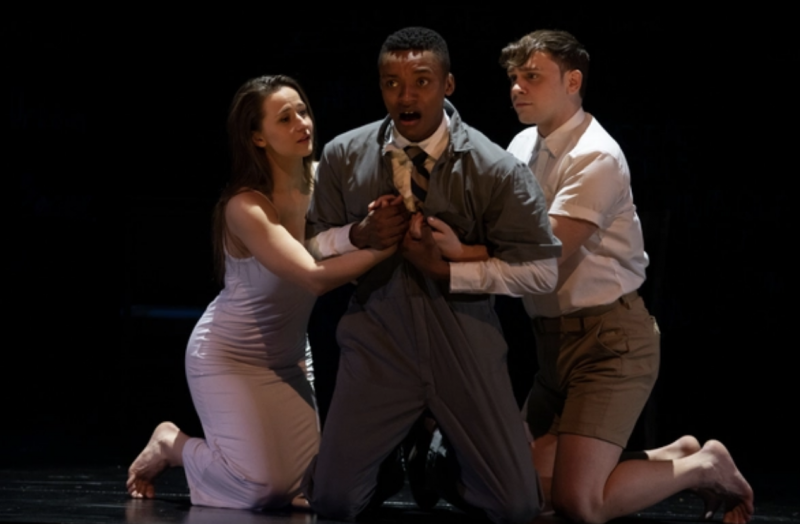 Still, despite these frustrating incoherencies, I immensely enjoyed the performances of the remarkably skilled ensemble of actors. There was not one performer on that stage who was not putting every ounce of emotion into their dialogue, vocals, and movement.
Still, despite these frustrating incoherencies, I immensely enjoyed the performances of the remarkably skilled ensemble of actors. There was not one performer on that stage who was not putting every ounce of emotion into their dialogue, vocals, and movement.
They are the definition of a cohesive, well-oiled machine of an ensemble, but even so Alex Joseph Grayson commands the stage and dominates the piece with his performance of Melchior. While he is an expert vocalist and executes the choreography as well as anyone, he is truly an actor's actor. His eyes conduct a performance of their own while he displays a masculine, but extremely vulnerable physicality - as evidenced in the heart-wrenching "Left Behind." I look forward to seeing how far Mr. Grayson goes with his career, because he gave one of the best performances I've seen on a stage - Broadway included.
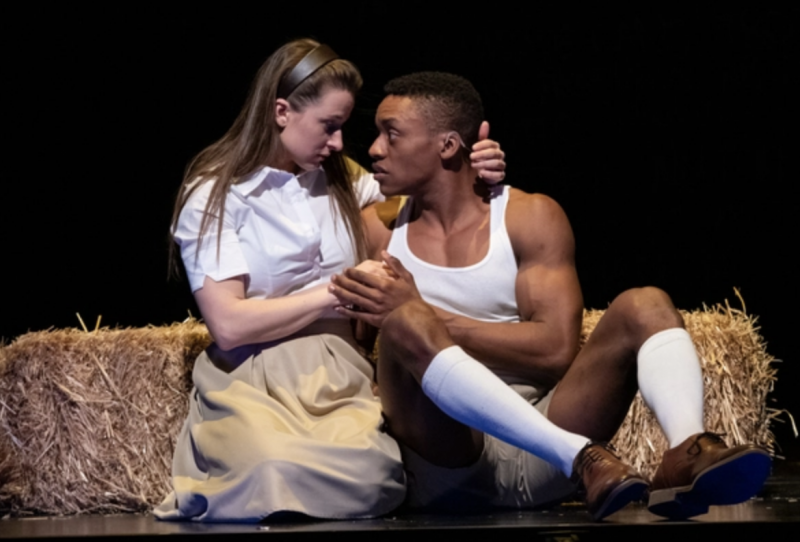 The two other leads - David Cronin as Moritz and Corrie Farbstein as Wendla - also exhibit much skill. Mr. Cronin's Moritz exudes insecurity as he struggles through school and tries to live up to what it means to be a well-respected man. His scene with Emily Nash's ostracized outcast and former childhood playmate Ilse is immensely moving and creates a high level of tension as his anthem for giving up - "Don't Do Sadness" - contrasts with Ilse's hopeful "Blue Wind."
The two other leads - David Cronin as Moritz and Corrie Farbstein as Wendla - also exhibit much skill. Mr. Cronin's Moritz exudes insecurity as he struggles through school and tries to live up to what it means to be a well-respected man. His scene with Emily Nash's ostracized outcast and former childhood playmate Ilse is immensely moving and creates a high level of tension as his anthem for giving up - "Don't Do Sadness" - contrasts with Ilse's hopeful "Blue Wind."
Ms. Farbstein does as much as she can with a sketch of a character - something I've thought of as a human placeholder for the essence of innocence corrupted rather than a fully fledged woman. The fact that she does not know how her own body works takes away part of her identity - and Ms. Farbstein's doe-eyed awe and confusion display this perfectly. Meanwhile, her vocal performances - especially the revelation that is the song "Whispering" - are very impressive.
Other standouts include Monica Bell, just called Adult Woman, and John Anker Bow, as Adult Man. Both are gifted actors and their experience shows with their ability to flip a switch from straight drama to the expressively bizzare choreography in the number "Totally F***ed."
The show is structured to give most characters their own moments to be focused on - if only for a minute. This talented cast takes those moments and makes an impact. As relatively a small scene it is, Angel Harrison's (Thea) reactions to finding out her friend is being beaten were truly powerful.
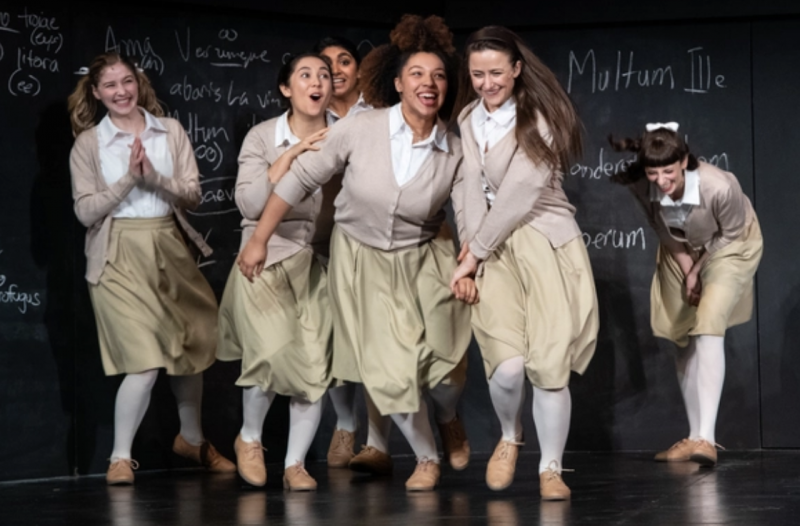 In my opinion, a good set becomes its own character. That can be said here. The prison-like windows and the chalkboards beneath them, covered in writing as the show goes on, was a nice symbolic gesture of the type of prison these characters live in.
In my opinion, a good set becomes its own character. That can be said here. The prison-like windows and the chalkboards beneath them, covered in writing as the show goes on, was a nice symbolic gesture of the type of prison these characters live in.
With all this in mind, it makes me wish that I could buy into Mr. Earnest's interpretation, but modern technology is this show's worst enemy. Like many plays and films, that rely on characters being disconnected, the plot simply cannot play out in today's world where we have instant access to anything on the internet - including, in Spring Awakening's case, an endless amount of sexual content. I can respect putting a new spin on a piece, but "Spring Awakening" as a musical already inherently pushes boundaries with the juxtaposition of Mr. Sheik's score and the original erratic choreography against Wedekind's setting and plot.
This production's interpretation aside, audiences should know that this is not a show for everyone. It includes explicit language, sexual simulations, and suicide.
However, I would implore theatre-goers to look past that. It has an incredible score, a talented cast, and stimulating subject matter. While I cannot get past some of the director's choices, others may be able to. That's the beauty of theatre and all the arts - everyone has their own interpretation of the work.
Reader Reviews

Videos

